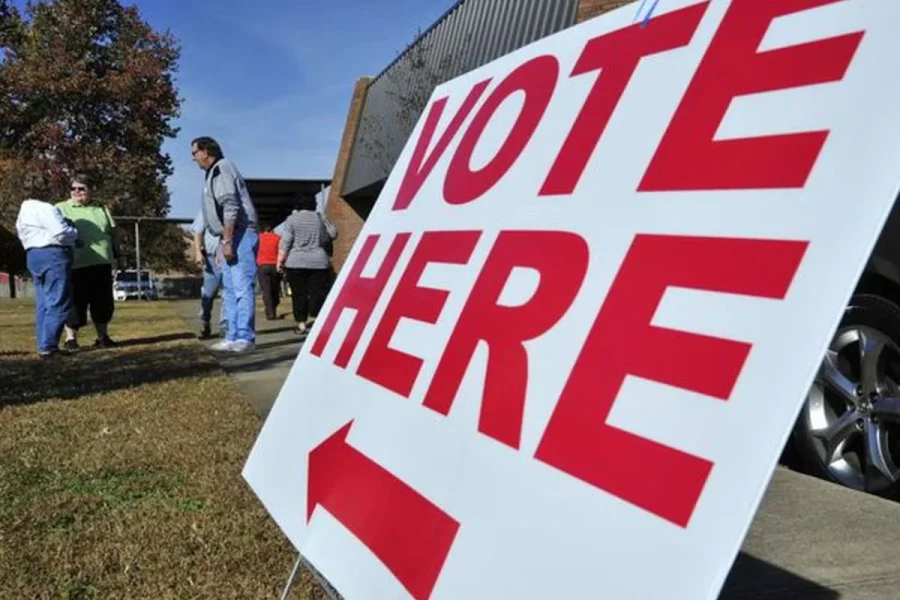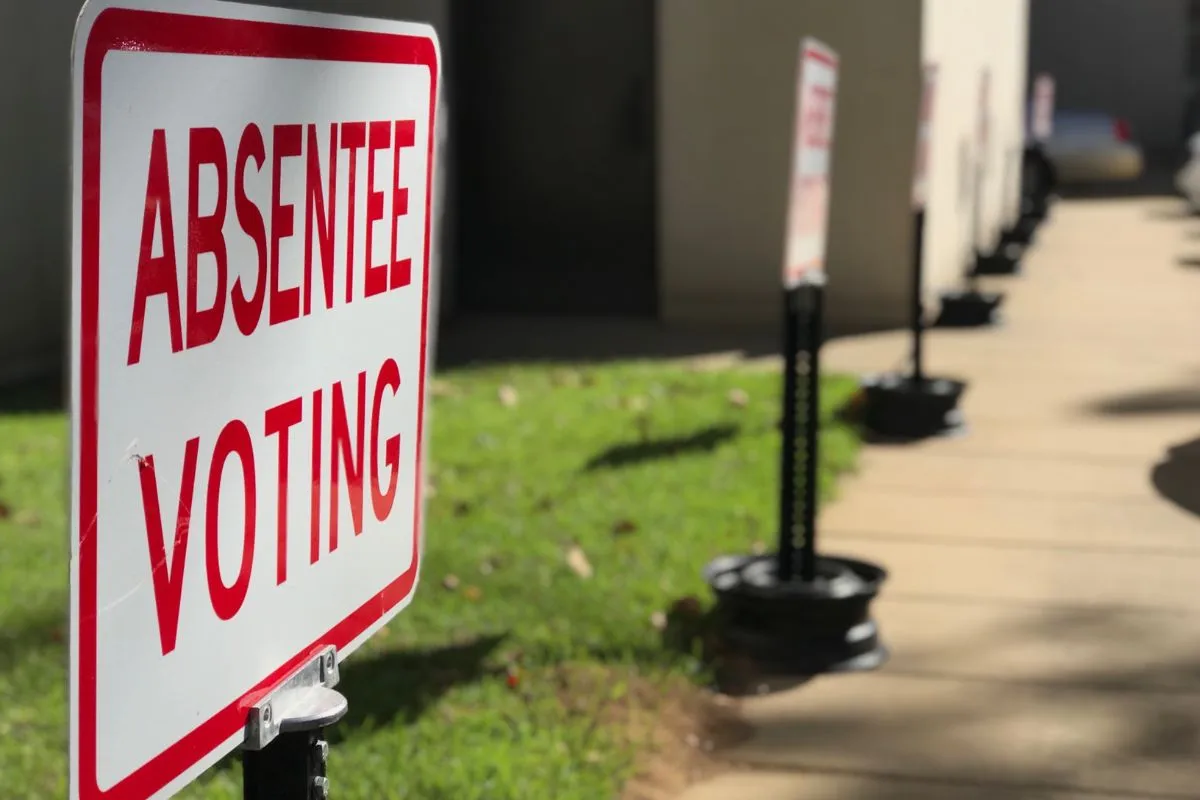Alabama Passes Controversial Absentee Voting: Alabama has recently approved bill SB1, led by Sen. Garlan Gudger, R-Cullman, which enforces strict absentee voting restrictions to tackle concerns surrounding ‘ballot harvesting’ and enhance election security.
Critics worry about potential voter intimidation and challenges in voter assistance, especially for vulnerable groups, raising questions about the balance between election integrity and accessible voting. The bill introduces severe penalties, making specific absentee ballot actions felonies punishable by up to 20 years in prison, aiming to deter misuse and fraud.
Senator Gudger defends SB1, citing bipartisan support and emphasizing its role in combating voter fraud while ensuring the protection of disabled or disadvantaged voters under federal laws. This move has sparked debate on the fundamental principles of democracy and the robustness of Alabama’s election system.
Legislative Approval and Bill Overview
The Alabama Senate recently granted final approval to bill SB1, a legislative measure spearheaded by Sen. Garlan Gudger, R-Cullman, aimed at regulating absentee ballot procedures, specifically addressing concerns surrounding ‘ballot harvesting’. SB1, with a decisive 24-5 vote in the Senate, now awaits Governor Kay Ivey‘s signature for enactment. This bill introduces strict regulations, making it a felony to engage in activities related to absentee ballots, such as receiving payment for distributing, requesting, collecting, prefilling, completing, obtaining, or delivering another voter’s absentee ballot application.
Republicans view SB1 as a critical step towards fortifying election integrity. Conversely, Democrats argue that this legislation aligns with a broader Republican agenda to bolster former President Trump’s unproven allegations of voter fraud in the 2020 election. The bill’s provisions aim to prevent potential abuses in the absentee voting process, particularly focusing on preventing any form of manipulation or coercion associated with ‘ballot harvesting’. As the bill moves towards potential enactment, it has sparked significant debate and scrutiny across party lines regarding its true intentions and potential impacts on future elections.
Opposition and Concerns
Amidst the ongoing debate surrounding the Alabama Absentee Voting Restrictions bill, concerns have been raised by critics regarding potential implications on voter assistance and intimidation. Opponents, particularly Democrats, contest the necessity of the bill by arguing that ballot harvesting is not a prevalent issue in Alabama.
The League of Women Voters of Alabama, among other critics, has highlighted the potential negative impact of the legislation on voter assistance. They fear that certain groups, such as voters with disabilities or individuals with felony convictions seeking to vote via absentee ballot, could face obstacles in exercising their voting rights.
Critics suggest that the restrictions could create barriers that discourage these vulnerable populations from participating in the electoral process, ultimately undermining the principles of democracy and equal access to voting.
As the opposition voices these concerns, the debate intensifies over the balance between election integrity and ensuring that all eligible voters can securely and effectively cast their ballots.

ALSO READ: Alabama Proposes Paid Parental Leave Expansion
Provisions and Penalties
Introducing severe penalties for violations, SB1 underlines specific actions concerning absentee ballot applications as felonies, carrying punishments ranging from one to 20 years in prison. The bill explicitly prohibits the distribution of prefilled absentee ballot applications and imposes restrictions on who can return these applications to the county’s absentee election manager. These stringent measures aim to regulate the absentee voting process tightly and deter any potential misuse or fraud.
To provide a clearer overview of the penalties outlined in SB1, the table below outlines the felonies related to absentee ballot applications and their corresponding prison terms:
| Felony Description | Prison Term |
|---|---|
| Distributing prefilled absentee ballot applications | 1-10 years |
| Returning absentee ballot applications improperly | 1-5 years |
| Violating absentee ballot application distribution rules | 1-20 years |
These penalties underscore the gravity with which Alabama is addressing absentee voting procedures, emphasizing the importance of compliance with the new regulations to avoid severe legal consequences.
Response and Justification
In light of the bipartisan nature of the bill and its focus on combating voter fraud, Senator Gudger has staunchly defended SB1, emphasizing its role in strengthening Alabama’s election system. Gudger highlighted that the legislation does not impede the rights of disabled or disadvantaged voters to receive assistance, as protected by federal law. He asserted that SB1 is designed to enhance Alabama’s election infrastructure, ensuring a fair and secure voting process for all citizens, regardless of their political leanings.
- The bill aims to combat voter fraud and guarantee the integrity of the electoral process.
- Senator Gudger emphasizes the bipartisan support behind SB1 as a proof of its fairness and necessity.
- Federal laws safeguard the rights of disabled or disadvantaged voters to receive necessary assistance, which SB1 upholds.
- Strengthening Alabama’s election system through SB1 is seen as critical for upholding democratic principles and maintaining public trust in the voting process.

News in Brief
Alabama approves SB1, led by Sen. Garlan Gudger, R-Cullman, imposing strict absentee voting restrictions to combat ‘ballot harvesting’ and bolster election security. The bill awaits Governor Kay Ivey’s signature after Senate approval. SB1 introduces severe penalties, making specific absentee ballot actions felonies punishable by up to 20 years in prison.
Critics express concerns over potential voter intimidation and barriers to voter assistance, emphasizing the balance between election integrity and accessible voting. Senator Gudger defends SB1, citing bipartisan support and its role in safeguarding against voter fraud while protecting federal rights for disabled or disadvantaged voters. The legislation sparks debate on democratic principles and Alabama’s election system robustness.

